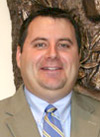
June 2, 2017 – Two of the State Bar’s legislative priorities for this upcoming session received favorable votes by the legislature’s budget writing committee on May 31. The Joint Finance Committee (JFC) approved increases in pay progression and increases in pay for judges.
Pay Progression Funded; Prosecutor Board Created
After years of lobbying, a new pay progression system was approved for Assistant District Attorneys (ADAs), Deputy District Attorneys (DDAs) and State Public Defenders (SPD) in 2013. The pay progression system is used to reward and retain experienced prosecutors that were leaving their respective offices to find higher pay elsewhere. Funding to maintain the pay progression system was removed in the 2015-17 budget.
Governor Walker proposed reinstating the funding for the upcoming 2017-19 biennial budget and members of the Joint Finance Committee (JFC) agreed to add the additional funding. According to the nonpartisan Legislative Fiscal Bureau, the pay progression plan consists of 17 hourly salary steps and the money approved would allow DDAs and ADAs to move up one full salary step. This salary step totals $1.97 per hour or $4,098 annually.
For SPD attorneys the results of the action are a bit more mixed. The State Bar encouraged the legislature to consider parity when approving the pay progression increases so that both sides of the system would receive equitable increases. The JFC instead approved amounts for SPD attorneys that would equal the cost of a 2 percent increase in 2018 and another 2 percent increase in 2019, which would mirror a general wage increase for other state employees. This new plan would create an imbalance in the wage scale for essentially the same job classification based on the state’s salary structure.
The JFC also went along with the Governor’s recommendation to provide the pay progression funding as a one-time budget allocation. This means the funding will not be allocated for pay progression in the district attorney’s base budget for the next biennial budget beginning in 2019-21, making compensation and retention an ongoing issue into the foreseeable future.
 Cale Battles is a government relations coordinator with the State Bar of Wisconsin. He can be reached at org cbattles wisbar wisbar cbattles org, or by phone at (608) 250-6077.
Cale Battles is a government relations coordinator with the State Bar of Wisconsin. He can be reached at org cbattles wisbar wisbar cbattles org, or by phone at (608) 250-6077.
An additional item that was unanimously approved by the committee was to establish a State Prosecutor Board. The newly established board would consist of 11 members, including both elected and nonelected prosecutors from different geographical locations of the state as well as the Attorney General or his designee. The board would also establish an Office of the State Prosecutors, employing an executive director and a legislative liaison. The Office of State Prosecutors would submit the biennial budget request for Prosecutor Board, prepare fiscal estimates on legislation impacting prosecutor offices, and represent the Board before the Governor, Legislature, and other entities.
Judicial Salary Increases Approved
Chief Justice Pat Roggensack has been strongly advocating for an increase in judicial salaries during this biennial budget, which have fallen to 41st in the country. Members of the JFC approved an increase in compensation for judges by 2 percent beginning Sept. 30, 2018, and another 2 percent increase beginning May 26, 2019. This increase will raise a circuit court judge’s salary by $5,300, a court of appeals judge by $5,618, and a Supreme Court justice’s salary by $5,955 over the course of the two years. The motion passed by JFC allows the court to ask for additional salary increases during the biennium, with the increases to be supported by the state’s compensation reserves or through existing resources in the court’s current budget.
The JFC will continue to vote on budget provisions over the next few weeks with a number of large funding issues still outstanding. It is unknown at this time if the legislature will complete their work and take action on the budget before the start of the new biennium July 1, 2017.
